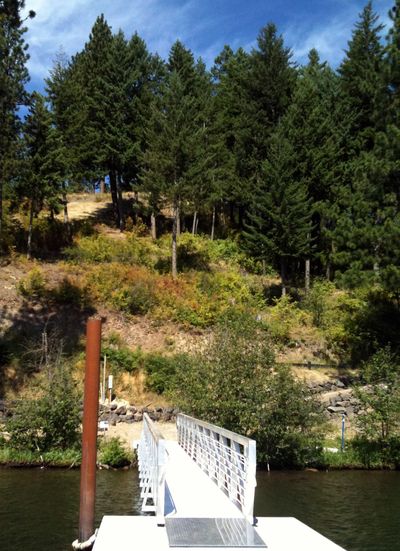Boy Scouts win dispute over Camp Easton deed

A prolonged legal fight over whether the Boy Scouts is free to sell a popular camp on Lake Coeur d’Alene is done. The organization can sell Camp Easton, the Idaho Supreme Court has ruled, but it has no plans to do so.
The Inland Northwest Council of the Boy Scouts is investing more money in its camp on Gotham Bay and no longer is considering a controversial swap for land on the other side of the lake. Still, Friday’s ruling clears up a dispute over the 85-year-old donation that established the camp.
Frederick W. Fitze gave the original 132 acres to the Idaho Panhandle Council of Boy Scouts in 1929, with the deed noting the land was “for use of the Boy Scouts.” It’s unambiguous and did not specify how the Scouts may use the property, justices concluded. That means the council has the authority to sell or swap Camp Easton, the court said.
In 2011 an Arizona-based developer offered to build a modern replacement camp at Sunup Bay and set up an endowment to operate the new camp in exchange for the Gotham Bay property. The council considered the offer, but the deal fell through the following year.
A group called Camp Easton Forever and two local Scouts, Daniel and Matthew Edwards, sued the council to prevent Camp Easton from being sold or traded. While the deed for the land contains no restrictions on selling the property, Kathleen Kolts, a lawyer for the plaintiffs, argued that Fitze intended it to be used in perpetuity for the camp, as summarized in the minutes of a meeting between him and local Boy Scouts officials in May 1929. Disregarding evidence of the intent of the donation would have a chilling effect on charitable giving, Kolts argued.
In a May 2012 decision for the Boy Scouts council, 1st District Judge John Luster found that the meeting minutes cannot be applied in the case and the language of the deed is unambiguous. The Supreme Court agreed, finding the deed did not specify how the Scouts use the property.
Council Executive Tim McCandless said Monday the council is pleased with the ruling. He also reiterated there are no plans to sell or move the camp, which this summer had its second-highest Scout attendance with more than 1,500 boys learning leadership, life and survival skills, and environmental stewardship.
Camp Easton will be further developed and upgraded, with plans to build a tunnel under state Highway 97, which cuts through the property, to provide a safe crossing for campers, McCandless said.
Tim Little, a longtime camp volunteer and treasurer of Camp Easton Forever, said he believes the lawsuit, though not successful, did help thwart the potential Camp Easton exchange in 2012. As for the court’s ruling, “That’s what the law is, and we have to accept that, whether we agree or disagree,” Little said Monday.
Camp Easton, which has grown to three times the size of the 1929 donation, is one of the busiest Scout camps in the Northwest. The council over the past 10 years also has expanded the waterfront area at Camp Easton, installed new boat docks, purchased new boats, renovated shooting ranges, expanded the dining hall and upgraded staff accommodations.
Stacey Cowles, publisher of The Spokesman-Review, is vice president for endowment of the Inland Northwest Council executive committee.